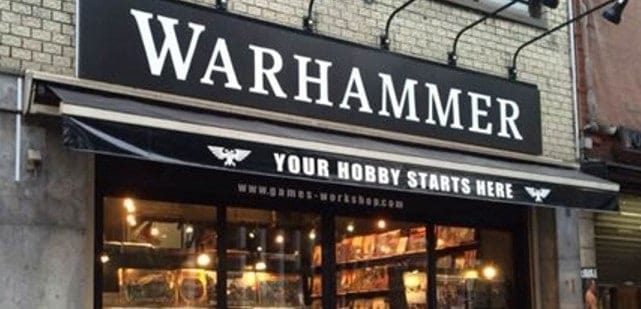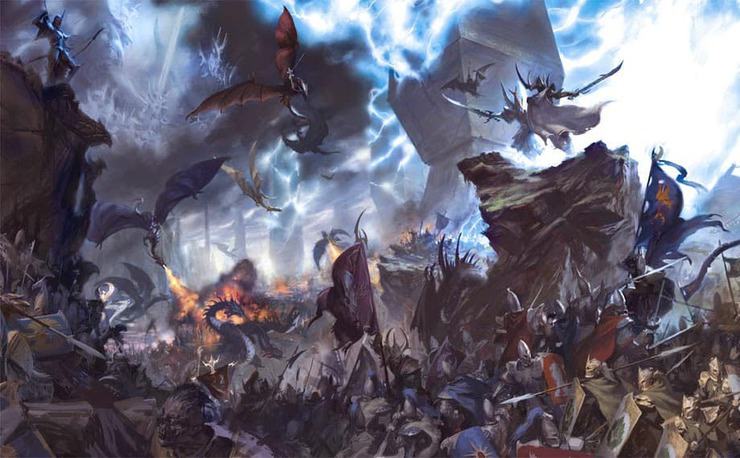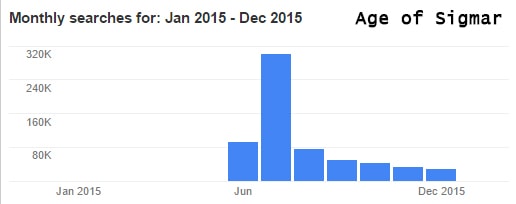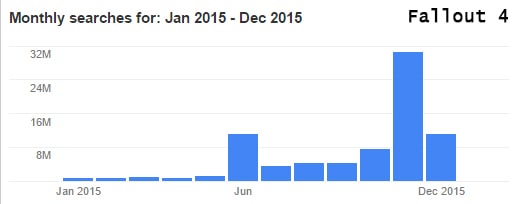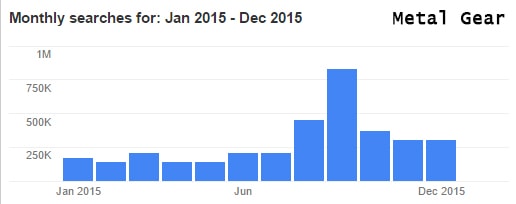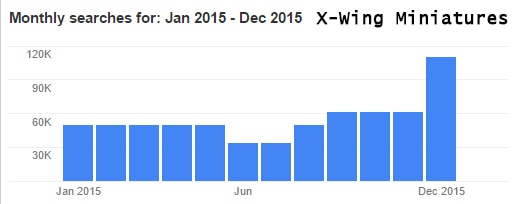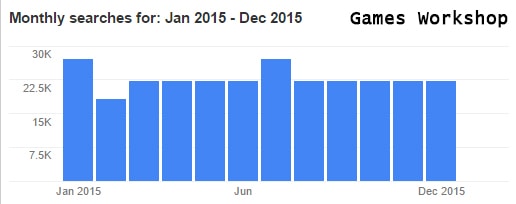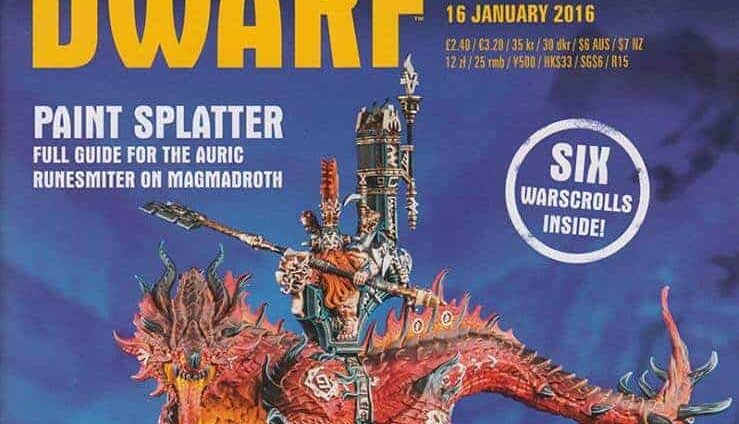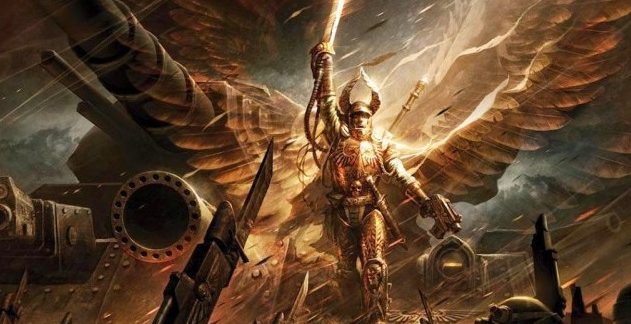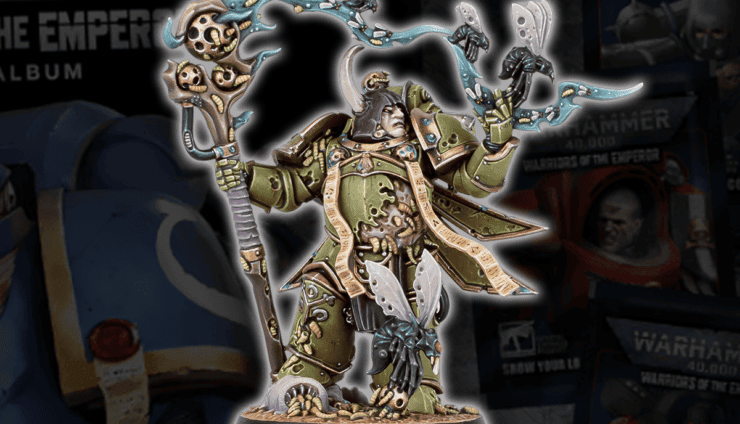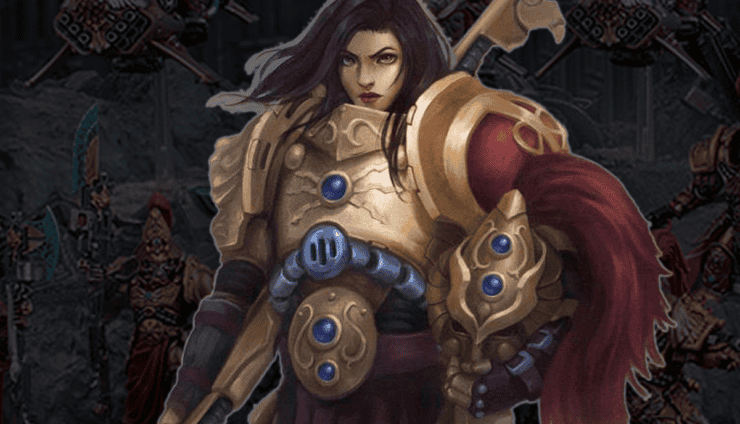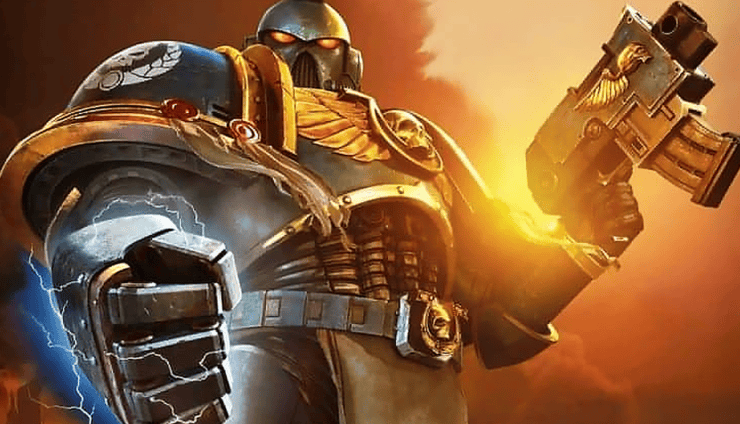It’s lonely at the top. Whoever sits atop the throne in an industry is a target for criticisms both warranted and otherwise.
Games Workshop is to miniature gaming what Time Warner or AT&T are to communications, as hated at times as Electronics Arts or even Comcast, recently voted the most hated company in the U.S.A.
Games Workshop has certainly contributed to this animosity, with many gamers frustrated by the lack of event support, and the rules imbalances that come with a game system not meant for tournament style play. Online as well Games Workshop has made no friends, deleting their own forums and electing not to have Facebook pages for their products due to the amount of moderation they required. I myself received a Cease and Desist notice from a Games Workshop VP about ten years ago when I was writing for TheOneRing.net. They never quite understood the internet – they still don’t.
What Games Workshop does understand however – is money.
The unpopularity of Games Workshop’s decisions are often followed by periods of growth, as business decisions meet with frustration but still result in continued sales. Games Workshop has hung in now for forty years, and yet every day you’ll hear an article claiming GW’s pending downfall.
Back in 2007 I worked for Nintendo. At a conference we all attended I was drinking with one of our Directors and they asked me which game console had won the previous console generation. This was before the days of the PS4 and the XBox One, he was asking about the PS2 vs. the XBox vs. our GameCube system. I’d told him as far as I’d known the PS2 was the best selling system.
Of course I was right, but I was also very wrong. See the Playstation 2 had sold more systems than the XBox or the GameCube, but the cost of the components within the PS2 and the XBox meant the GameCube was actually turning a huge profit with each system sold. Equally the software licensing that Sony and Microsoft had to pay out ate up a lot of those profits, so when you get past the top line “total units sold” and you start thinking in “actual profit earned” it’s a whole different math.
Question: Is Age of Sigmar a disappointment to Games Workshop?
As much as you might see people arguing about their Playstation vs. their friends’ XBox, the figures that we value in these debates are often the ones the business folks could care less about. That is all marketing, that is all fluff, the bottom line is what truly matters in business, and in my above Nintendo story my superiors were teaching me that I was a big nerd and I needed to look at it like a businessman instead – look at the money, of which Nintendo was putting away a ton.
Enter Age of Sigmar – the hotly debated successor to Warhammer Fantasy. No points system, a tiny rule”book”, and the castration and resetting of over twenty years of lore. People were pretty pissed, and while I am personally giving Age of Sigmar a shot, those who aren’t are fully justified in their negative feelings. Games Workshop seriously rocked the boat.
But did it hurt sales?
The short answer is we don’t know. The financial reports that came out a week ago show Games Workshop doing a hair worse than they did last year in total revenue, but they don’t break out sales by game system at all. In-store sales were down a few percent, but online sales were up a few percent, it was an overall dud of a report, and unfortunately gave us no concrete “Age of Sigmar did X in sales” figures to even argue about.
So we go off of our own conversations, our own observations, and rumors, that generally show more people pissed off about Age of Sigmar than we see people playing it. Right? Well, again, just because we didn’t see people playing Lord of the Rings over the last ten years doesn’t mean that it wasn’t a big seller for Games Workshop, and people bought the sets to play at home with small groups of friends, it was never the “pick up game” style that 40k was, but it sold big, to the point where even in 2015 the massively expensive Smaug kit was their #1 selling product.
Again – it’s not about what we nerds argue about – they don’t care. They don’t love their game systems the way other companies do, companies that actually play their own games. They are a business, just like Electronic Arts or Comcast, hated as they may be, they’re making millions of dollars every year and as long as that is the case they aren’t likely to change.
Having spoken to some folks at Games Workshop I have heard that there was a pretty major spike in sales when Age of Sigmar came out, and at my local stores here I see people playing games and telling stories about how hard Stormcast Liberators are to kill, or how much fun they had running the Sylvaneth tree units. I myself am pretty excited about these upcoming Fyreslayers.
That said, you pop onto various message boards, or in blog comments, and you’d think that Games Workshop has only sold six starter sets, and one was a gag gift! So what can we look at?
One of the popular bashing points for Age of Sigmar is the Google Trends data (above) for the search term “Age of Sigmar”. Looks like it had a very healthy initial spike, and then it completely fell off the grid, right? Well, yes, technically speaking there was a huge spike, but this is also a brand new keyword which didn’t exist prior to the June numbers you see there, so heading up above 300,000 searches and then falling down to about 25-30k per month isn’t so bad for Games Workshop.
This is the chart for Fallout 4, you can see a similar massive spike when the game first came out followed by a drop once the initial interest died down. That is generally how release schedules work, and while we only have data through December here it’s a pretty safe bet that the Fallout 4 numbers will continue to decline the farther they get from that initial push. This is all totally normal.
Here we have Metal Gear, enjoying massive sales for their Metal Gear V release (even though I want to strangle Konami) the Google search data averages about 200,000 regularly, spike high following the release and then again start to go back down again, and just like Fallout 4 you’re going to see the search data decline more and more as we go along.
But Matthew, you might say, those are video games! A miniatures game is supposed to be steady and hot at all times if it is doing well. An excellent point, but it’s very easy to see what we want to see in data, if you find a chart that makes Age of Sigmar look bad, you’re going to celebrate it if you hate the rules system, while if you love the rules system you are more likely to make excuses for it, but that is all irrelevant, at the end of the day only the full complete data matters.
Here we have the X-Wing Miniatures game, pretty steady, dips a bit during the summer months, and then spikes pretty hard with the new movie hitting theaters. A lot of times we expect charts to be sexy and show this crazy growth, but as we all know the X-Wing Miniatures are sitting at #2 right now behind Warhammer 40,000 in sales. By no means am I suggesting that Age of Sigmar has X-Wing numbers, especially with the volume of folks who buy the X-Wing figures just for the figure and not to play, but this gives us a baseline on what a miniature game looks like.
They average tens of thousands of searches, not hundreds of thousands, not millions, it’s a pretty conservative piece of the pie. The only way to truly dive into the nitty gritty would be to collect all the keywords for all the individual models in all the games and then compare those search volumes, as I personally search for “Stormcast Eternals” on Google than I do “Age of Sigmar” alone. The users behavior is going to change the longer they have the game, switching to more specific search terms for the units or characters they are interested in.
Based on these charts alone, we can say that Age of Sigmar has about half the buzz that X-Wing Miniatures has, not counting the big spike for the movie. That certainly could be better, but it is pretty well in line for Games Workshop in general.
Which we see here finally with the search term “Games Workshop” by itself, which I feel paints a pretty clear picture. Back in 2013/2014 Games Workshop did have a dip in their stock evaluation, and some blog commentators said that “Games Workshop is burning” when shares fell 37.5% from a high of 800 GBp per share down to 500 GBp per share. That was a big shake up at Games Workshop, and we are still feeling the impact of that decline, but the share prices have increased, reaching a high of 604 GBp in November and currently sitting down at 545 GBp, which is still a 15% gain from the 300 GBp they lost back in 2014. EDIT – Shares have rallied up 2.5% to 559.50 GBp in the last few hours.
It all comes back to that Nintendo story though, and this is where I’ll leave you. Whenever Nintendo sold a Mario Kart game they only had to pay themselves, licensing is expensive, and when a Warhammer product is sold, be it Age of Sigmar or Warhammer 40,000, Games Workshop only has to pay itself. They aren’t paying big bucks to Disney like Fantasy Flight has to do with the X-Wing Miniatures and Armada games (which are both great) and they aren’t paying out to Marvel and DC like WizKids does.
That may not sound like a big deal, but in the startup world we call it being lean. You want as few expenses and liabilities as you can get, you want to be light, and agile, which is why so many Games Workshop stores have evolved into these one man operations, because they want to have the big impact of a recruiting store but they want the smallest footprint possible to do it. That’s what happens when a company is recovering from a loss, and there was certainly a loss in 2014, but that isn’t what we’re seeing now.
It’s easy to fixate on data that supports the “GW is burning” narrative, but if we go back past the crash in 2014 to 2011 and Games Workshop shares were only trading at 354 GBp, so while they did rise to over 800 GBp they still have grown their revenue dramatically in the last five years vs. those 2011 numbers.
Hopefully – as Games Workshop’s fiscal year ends before the summer of 2016 – we’ll be able to get some solid numbers from Age of Sigmar and see how it is selling vs. the other games, vs. Fantasy, and whether or not Games Workshop is seeing a return from that game. Until we have that real solid data, let me say as a business owner, consultant, and mentor to startup companies, that the sky is not falling (even if you were really hoping it would) and that under the new management of Kevin Rountree Games Workshop is actually doing pretty good.
It’s easy to want to zoom in to the tiny details of right now and say “SEE! THIS IS PROOF!” but micro economics vs. macro economics is all about scope, and while the day to day operations and revenues do matter, it’s the big picture over time that GW is worried about. They’ve been around for forty years, they’re certainly not going anywhere.
Just another day in toy soldiers.
